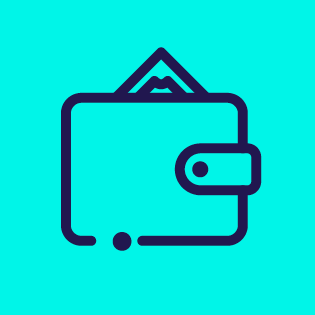Your read progress
Six practical ways to pay off debt
5 minute read
Updated 15th September 2025 | Published 11th August 2023
.png)
In March 2019, Clare Seal aka @myfrugalyear found herself struggling with £27k of personal debt. She had no assets or financial safety net. Since then, Clare's rebuilt her relationship with money. She's now a financial coach and author of Real Life Money, The Real Life Money Journal and Five Steps to Financial Wellbeing.
We asked Clare to take over our blog to give you practical steps on how to deal with debt in a manageable way.
Struggling with debt? Here are six steps to help you regain control
With the rising cost of living, it’s no surprise that people are finding themselves with personal debt. Personal loans, credit cards and buy now, pay later schemes can come in handy when used responsibly. But it’s all too easy for things to spiral out of control.
Dealing with debt can be isolating. People can often feel too embarrassed or ashamed to confide in others for help. It’s important to understand that you’re not alone. Debt is something that affects thousands of people. It can be difficult to avoid. It’s always survivable, but the sooner you start taking practical steps to resolve it, the less anxious you’ll feel. Are you done burying your head in the sand about your debt, but don’t know where to start? Here are a few practical steps that you can follow to get you there:
Arm yourself with all the information
It’s almost impossible to feel calm and in control of any situation if you don’t have all the information. But the unknown is often far scarier than the facts. Take some time, in a calm environment, to check the following:
- All your account balances
- Interest rates
- Terms and conditions
- Minimum repayments and payment dates
You might also like to make a note of your credit score. You can use Experian, Equifax and Transunion. You may also make a note of any factors affecting your credit score, like missed or late payments.
These are practical steps in paying off your debt. It's also one of the most empowering things you can do for your mental health and relationship with money.
Find out whether you need help
Once you know all the facts you'll be able to understand if your debt is something that you can tackle yourself, or whether you need external help. Help with paying off debt comes in all shapes and forms. It might be emotional and moral support from online communities or your friends and family. Or it could be payment arrangements via your lender or a debt charity. For example StepChange, Christians Against Poverty or National Debtline.
You could start with a call to your bank or lender. You can see if they can offer you a better interest rate, balance transfer or any other offers or goodwill gestures. This can give you a bounce in the right direction or a break from paying interest. You could also look for balance transfers and check your eligibility on comparison sites. Just make sure to cancel your original credit card to prevent running up debt on it again. It’s easily done.
Review your spending and budget
Your budget is the keystone of your finances under any circumstances. But it’s particularly important if you’re looking to pay off debt as quickly and effectively as possible. Whether you choose to use an app, spreadsheet or pen and paper, create an accurate budget with all your income and outgoings. Use this to calculate how much money you can throw at your debt each month.
Your budget is also essential in helping you to keep your spending under control. Especially if your debt has built up due to overspending rather than specific expenses. Reviewing your spending from the last six to twelve months will give you a better understanding of your finances. You can then see where you might have been overspending. It can also help you to identify where you could make cuts to free up more cash to pay off your debt.
Make a plan
Once you know how much money you can spare each month for debt payments, you’ll be in a better position to plan your repayments.
How you choose to prioritise paying off your debts is up to you. Some people choose the ‘snowball method’ of prioritising smaller debts first and then moving to larger balances. This gives you some quick wins and can simplify your finances. Others prefer to prioritise the debts with the highest interest, meaning that they pay less interest overall. The method you choose depends on what you think will work best for you. Whatever plan you choose, be consistent with it.
Track your progress
Paying off debt can feel like a thankless task at times, so make sure that you track and celebrate your progress like you would with any other goal. Check in monthly and watch those balances shrink as you feel the weight lift off your shoulders. You could use a spreadsheet, but there are also more visual ways of tracking your progress. For example, you could draw out a ten x ten grid, and colour in a square each time you’ve paid off 1% of your debt.
You could pick out some milestones to celebrate with a treat, whether that’s a certain amount paid off or a certain number of months sticking to the plan.
Adapt where necessary
It’s important to have a degree of flexibility in your plans – often, if things can’t bend, they break. Be prepared to make mistakes, and to adjust your budget and repayments if things aren’t working.
We hope you find these tips useful. For more tips on reducing debt and managing your money, head over to Clare’s website or find her on Instagram.
We've created this blog to provide guidance on debt rather than specific advice. If you need debt advice, we recommend that you contact a debt management organisation. Click here to read our blog that lists what support is available if you need it.
Written by Errolyn
Senior Content and Social Media Executive
As Featured By
Join our mission
We use the power of consumer reviews to help increase trust and transparency in financial services and to deliver industry leading insight and events.
Write a reviewExplore our other topics

News: Awards

News: Industry news

News: Smart Money People news

Guides: Smart money guides

Guides: Smart money tips


.png)
.jpg)

